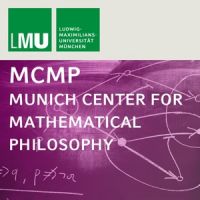By Category
Arts
Arts and Design
Business
Comedy
Crypto
Education
Fashion & Beauty
Fiction
Games & Hobbies
Government & Organizations
Health
History
Horror and Paranomal
Kids & family
Leisure
Marketing
Motivation
Music
News & Politics
Philosophy
Religion & Spirituality
Science & Medicine
Society & Culture
Sports & Recreation
Storytelling
Technology
Travel
True Crime
TV & Film
By Language
Afar
Afrikaans
Akan
Albanian
Amharic
Arabic
Armenian
Assamese
Azerbaijani
Bambara
Basque
Belarusian
Bengali
Bosnian
Breton
Bulgarian
Burmese
Catalan Valencian Active
Central Khmer
Chamorro
Chechen
Corsican
Croatian
Czech
Danish
Dutch
Dzongkha
English
Esperanto
Estonian
Faroese
Finnish
French
Gaelic, Scottish
Galician
Georgian
Georgien
German
Greek
Greek (modern)
Gujarati
Hausa
Hebrew (modern)
Hindi
Hungarian
Icelandic
Indonesian
Irish
Italian
Japanese
Javanese
Kannada
Kazakh
Kinyarwanda
Korean
Kurdish
Kyrgyz/ Kirghiz
Latin
Latvian
Lithuanian
Luxembourgish
Macedonian
Malay
Malayalam
Mandarin Chinese
Maori
Marathi
Mongolian
Nepali
Northern Sami
Norwegian
Norwegian Bokmål
Norwegian Nynorsk
Oriya
Oromo
Pashto
Persian
Polish
Portuguese
Punjabi
Quechua
Romanian
Romansh
Russian
Sanskrit
Serbian
Serbian
Serbo-Croato-Slovenian
Sinhala
Slovak
Slovenian
Somali
South Ndebele
Spanish
Sundanese
Swahili
Swedish
Tagalog
Tajik
Tamil
Telugu
Thai
Tibetan
Tigrinya
Tswana
Turkish
Twi
Uighur. Uyghur
Ukrainian
Urdu
Uzbek
Vietnamese
Welsh
Wolof
Xhosa
Yiddish
Yoruba
Zulu
By Country
Afghanistan
Algeria
Andorra
Argentina
Armenia
Australia
Austria
Azerbaijan
Bangladesh
Belgium
Bosnia and Herzegovina
Brazil
Bulgaria
Canada
Chile
China
Colombia
Costa Rica
Croatia
Cyprus
Czech Republic
Denmark
Dominican Republic
Ecuador
Egypt
El Salvador
Estonia
Faroe Islands
Finland
France
Georgia
Germany
Greece
Hong Kong
Hungary
Iceland
India
Indonesia
Iran
Ireland
Israel
Italy
Japan
Kazakhstan
Kuwait
Lao Peoples Democratic Republic
Lithuania
Luxembourg
Mexico
Namibia
Netherlands
New Zealand
Niger
North Korea
Norway
Pakistan
Panama
Peru
Philippines
Poland
Portugal
Puerto Rico
Republic of the Congo
Romania
Russia
Saudi Arabia
Serbia
Slovenia
Somalia
South Africa
South Korea
Spain
Sri Lanka
Sweden
Switzerland
Syria
Taiwan
Tajikistan
Thailand
Turkey
UAE
UK
Ukraine
USA
Uzbekistan
Venezuela
Vietnam
 More
More
 Religion & Spirituality
Religion & Spirituality Education
Education Arts and Design
Arts and Design Health
Health Fashion & Beauty
Fashion & Beauty Government & Organizations
Government & Organizations Kids & family
Kids & family Music
Music News & Politics
News & Politics Science & Medicine
Science & Medicine Society & Culture
Society & Culture Sports & Recreation
Sports & Recreation TV & Film
TV & Film Technology
Technology Philosophy
Philosophy Storytelling
Storytelling Horror and Paranomal
Horror and Paranomal True Crime
True Crime Leisure
Leisure Travel
Travel Fiction
Fiction Crypto
Crypto Marketing
Marketing History
History

.png)
 Comedy
Comedy Arts
Arts Games & Hobbies
Games & Hobbies Business
Business Motivation
Motivation






